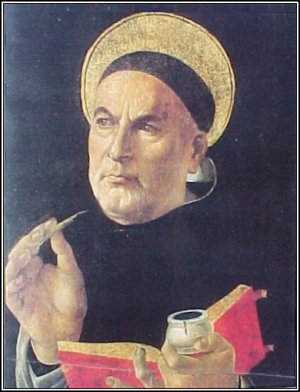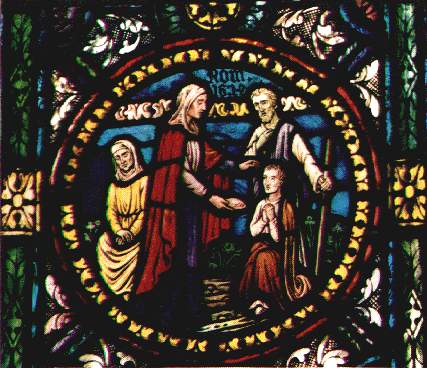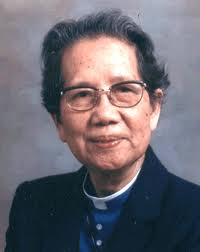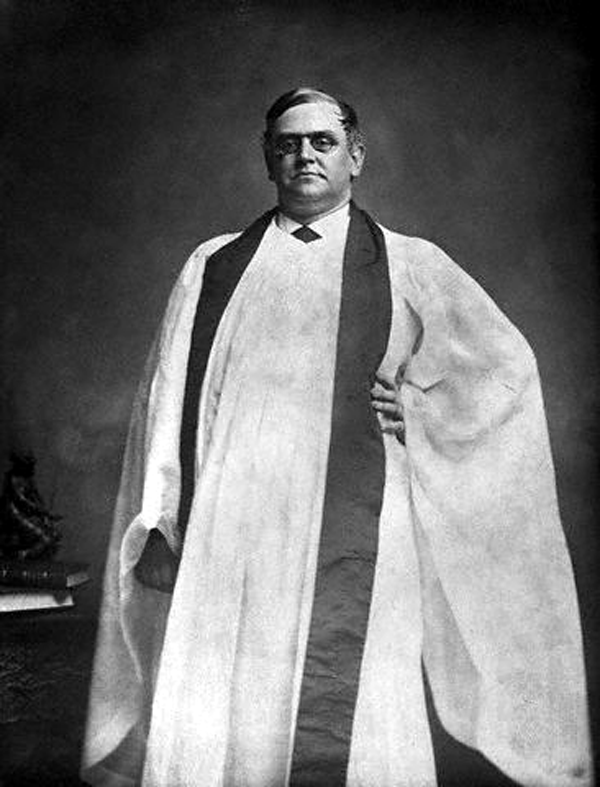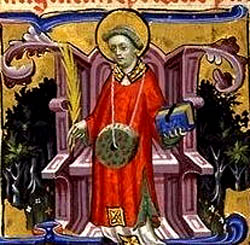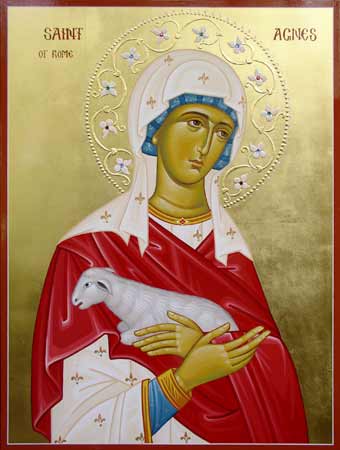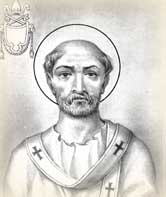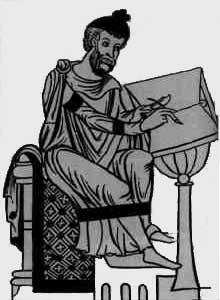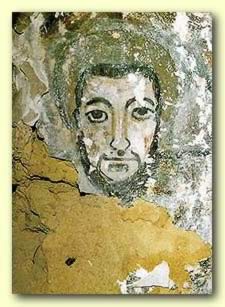Welcome to the Holy Women, Holy Men blog! We invite you to read about this commemoration, use the collect and lessons in prayer, whether individually or in corporate worship, then tell us what you think. For more information about this project, click here.
###
Thomas Aquinas is the greatest theologian of the high Middle Ages, and, next to Augustine, perhaps the greatest theologian in the history of Western Christianity. Born into a noble Italian family, probably in 1225, he entered the new Dominican Order of Preachers, and soon became an outstanding teacher in an age of intellectual ferment.
Perceiving the challenges that the recent rediscovery of Aristotle’s works might entail for traditional catholic doctrine, especially in its emphasis upon empirical knowledge derived from reason and sense perception, independent of faith and revelation, Thomas asserted that reason and revelation are in basic harmony. “Grace” (revelation), he said, “is not the denial of nature” (reason), “but the perfection of it.” This synthesis Thomas accomplished in his greatest works, the Summa Theologica and the Summa Contra Gentiles, which even today continue to exercise profound influence on Christian thought and philosophy. He was considered a bold thinker, even a “radical,” and certain aspects of his thought were condemned by the ecclesiastical authorities. His canonization on July 18, 1323, vindicated him.
Thomas understood God’s disclosure of his Name, in Exodus 3:14, “I Am Who I Am,” to mean that God is Being, the Ultimate Reality from which everything else derives its being. The difference between God and the world is that God’s essence is to exist, whereas all other beings derive their being from him by the act of creation. Although, for Thomas, God and the world are distinct, there is, nevertheless, an analogy of being between God and the world, since the Creator is reflected in his creation. It is possible, therefore, to have a limited knowledge of God, by analogy from the created world. On this basis, human reason can demonstrate that God exists; that he created the world; and that he contains in himself, as their cause, all the perfections which exist in his creation. The distinctive truths of Christian faith, however, such as the Trinity and the Incarnation, are known only by revelation.
Thomas died in 1274, just under fifty years of age. In 1369, on January 28, his remains were transferred to Toulouse. In addition to his many theological writings, he composed several eucharistic hymns. They include “O saving Victim” and “Now, my tongue, the mystery telling.”
Collects
i Almighty God, who hast enriched thy Church with the singular learning and holiness of thy servant Thomas Aquinas: Enlighten us more and more, we pray thee, by the disciplined thinking and teaching of Christian scholars, and deepen our devotion by the example of saintly lives; through Jesus Christ our Lord, who liveth and reigneth with thee and the Holy Spirit, one God, for ever and ever. Amen.
ii Almighty God, you have enriched your Church with the singular learning and holiness of your servant Thomas Aquinas: Enlighten us more and more, we pray, by the disciplined thinking and teaching of Christian scholars, and deepen our devotion by the example of saintly lives; through Jesus Christ our Lord, who lives and reigns with you and the Holy Spirit, one God, for ever and ever. Amen.
Lessons
Wisdom 7:7–14
1 Corinthians 11:23–26
Matthew 13:47–52
Psalm
119:97–104
Preface of Trinity Sunday
Text from Holy, Women, Holy Men: Celebrating the Saints © 2010 by The Church Pension Fund. Used by permission.
###
We invite your reflections about this commemoration and its suitability for the official calendar and worship of The Episcopal Church. How did this person’s life witness to the Gospel? How does this person inspire us in Christian life today?
If you’d like to participate in the official online trial use survey, click here. For more information about the survey, click here.
To post a comment, your first and last name and email address are required. Your name will be published; your email address will not. The first time you post, a moderator will need to approve your submission; after that, your comments will appear instantly.
